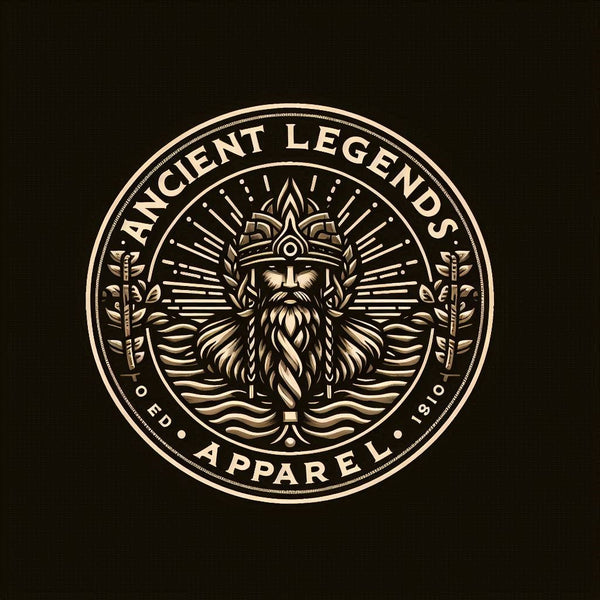What Ancient Cultures Believed About Lost Civilizations
Karl FShare
INTRODUCTION
Step into the largely uncharted worlds of myths and legends, into time-worn tales whispered by our ancestors around blazing fires and inscribed on ancient parchments. Here is the realm where history meets imagination, and reality blurs with the fantastical. This writing is an exploration into what ancient cultures believed about lost civilizations. Enigmatic lost cities and societies have captivated our collective imagination for centuries. But beyond just textual references and archaeological evidence, lost civilizations often hold profound symbolic meanings and interpretations in the collective mythos of humanity, reflecting the times and cultures that birthed the stories.
ORIGIN AND CULTURAL CONTEXT
The concept of lost civilizations dwells at the heart of myriad cultures spanning the globe, each rich in its unique cultural context and philosophical musings. The Aztecs spoke of the mythical Aztlan, their ancestral homeland lost in time. Ancient Greek tales chronicled Atlantis, a city-state unbearable in its affluence and retched in its downfall. Indian scriptures refer to the lost land of Dvārakā, an underwater kingdom lost to the depths of the ocean. Persians told of Irem, the City of Pillars in the lonescent desert, and Polynesians of a paradisiacal land called Hawaiki.
These narratives tell relationship between human societies and the vicissitudes of time, reflecting the cultures' understanding of morality, spirituality, and transience. They underline the inevitable, cyclical law of birth, zenith, decay, and death.
THE LEGEND OR STORY
Among the legendary lost civilizations resonating through time, Atlantis is arguably the most emblematic, birthed from ancient Greece’s intellectual vigour. The philosopher Plato mentions Atlantis in his dialogues "Timaeus" and "Critias." He describes a confederation of kings with extraordinary wisdom and power from an island beyond the Pillars of Hercules (the modern-day Strait of Gibraltar).
Atlantis was a marvel of architectural grandeur, with concentric rings of water and land adorned with gold, silver, and exotic wildlife. Plato attributes its destruction to its people's moral decay, engrossed in worldly desires, and their deviation from the "divine portion" of their lineage. In a single day and night, Atlantis sunk into the ocean, "disappearing into the depths."
INTERPRETATIONS AND SYMBOLISM
The legendary Atlantis has been interpreted in various ways, reflecting the philosophical and cultural lenses of different eras. Symbolically, Atlantis often embodies pride, corruption, and power's pitfalls. It serves as a stern reminder of the moral erosion accompanying luxury and affluence. The tale closely aligns with Greek philosophy, which often emphasizes moderation and celebrates virtuous life.
The abrupt sinking of Atlantis also symbolizes nature's cataclysmic retribution for human greed, a motif found in many cultures' flood myths. Some occult traditions interpret Atlantis as a spiritual allegory for the Fall of Man, representing our spiritual decline and eventual redemption.
COMPARISONS IN OTHER CULTURES
Interestingly, other cultures narrate similar tales of lost civilizations. For instance, the Hindu scriptures detail the submergence of Dvārakā, a divine city associated with the god Krishna. It parallels Atlantis' tale, as Dvārakā, despite its opulence and moral zenith, eventually succumbs to the sea depth as an act of divine cleansing.
Likewise, Native American tribes tell of a mighty antediluvian civilization that incurred nature's wrath through its moral corruption, paralleling the Atlantis narrative. These analogous stories underscore a shared understanding about civilizations' transience and the unremitting dance between creation and destruction.
MODERN REFERENCES AND POP CULTURE
The lore of lost civilizations has permeated modern culture, featuring prominently in literature, film, and video games. H.P. Lovecraft's work often mentions ancient, lost cities like dread R'lyeh. The Indiana Jones franchise thrills audiences with the archaeologist's quests for mythical cities and artifacts. The wildly popular game series Uncharted echoes this theme with its protagonist exploring lost civilizations across the globe.
The captivating idea of Atlantis persists in several cultural iterations—from Jules Verne's "20,000 Leagues Under the Sea" to the Disney animation "Atlantis: The Lost Empire". Atlantis, a symbol of a utopian past or a cautionary tale of moral degradation, continues to inspire, warn, and captivate.
LEGACY AND LASTING MYSTERIES
Despite the wealth of folklore, archaeological evidence remains elusive for these mythically lost civilizations. The persistent lack of physical evidence only adds to their enigma and allure, inspiring countless expeditions and theories.
However, their enduring legacy is not merely in these quests for tangible proof. The lost civilizations' legends, in their thematic richness and symbolic power, continue to narrate timeless human narratives—our monumental struggles, our mortal frailties, the cyclical dance of creation and destruction, and the eternal hope amid the ruins for a brighter civilization rising like a phoenix. These tales remain ever poignant, ever relevant, holding up a mirror to our own societies, our collective ambitions, and moral compasses. Despite the tides of time, they refuse to sink into oblivion, persisting, resonating, and sailing into our collective human future.
